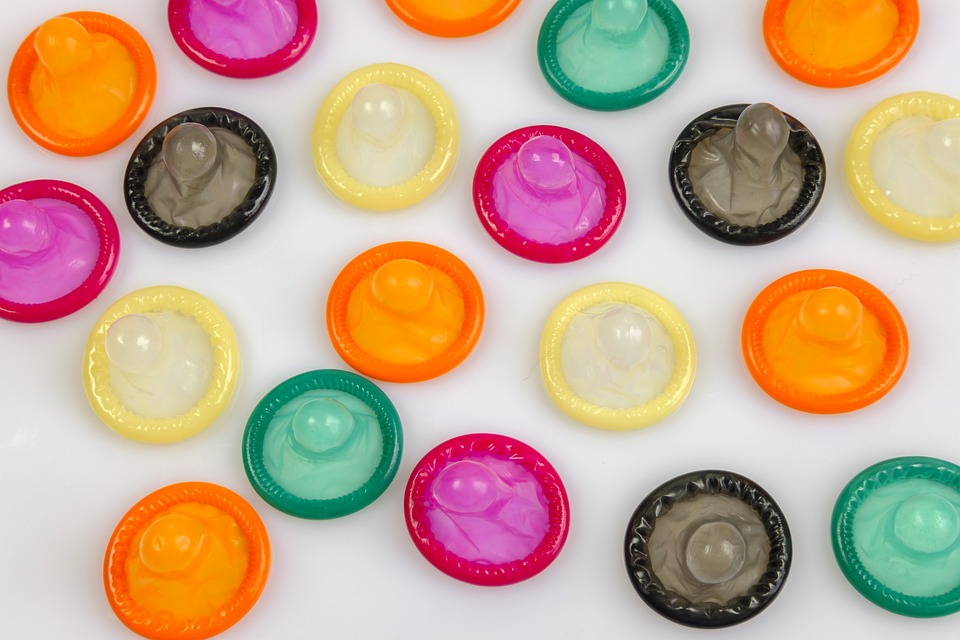Sexually Transmitted Infections: How Can I Catch an STI?
Over one million sexually transmitted infections are acquired every day worldwide [1]. You can catch an STI through sexual contact, as well as vaginal, anal or oral sex. The likelihood of you catching or passing on an STI is higher if you do not practice safer sex, for example by wearing a condom.
Some sexually transmitted infections are passed on through skin-to-skin contact [2]. For example, Herpes is a common STI that can be caught through kissing someone who has a cold sore around their mouth. Hand-to-genital contact can also result in a sexually transmitted infection [3].
In some cases, you may receive a positive STI diagnosis and be in an exclusive relationship. This does not always mean your partner has cheated on you. For example, Herpes blisters and symptoms may occur years after infection. This is called a delayed outbreak. It means that you may have already been infected despite experiencing no symptoms in the past.
Circumstances such as ill-health or stress may cause a Herpes outbreak to occur [4]. Some women can experience vaginal discomfort. This could be due to an STI, or an imbalance of the bacterial populations in your vagina [5].
It is possible to have a sexually transmitted infection in more than one area. You could have an STI in your throat and the genitals at the same time. There are several STIs you could catch from oral sex, including Chlamydia and Gonorrhoea.
STIs can be passed on to your partner even if you are not experiencing any symptoms of infection. This works both ways. If your partner is infected with an STI, you can still be infected if they do not exhibit any signs of an STI [6].
How can I prevent STIs?
It is important to take the right precautions to avoid infection or giving your partner an STI [2]. You can do this through a number of different ways:
Using Condoms
Condoms are one of the most effective ways to prevent STIs. There are male and female condoms. It is the only contraceptive method that will protect against sexually transmitted infections and pregnancy at the same time if used correctly and regularly [7].

Setting Boundaries For Sexual Activities
You may engage in some sexual activities that increase your chances of catching or passing on an STI. This can include not using a condom, having multiple sex partners, anal sex, and having an untreated sexually transmitted infection.
Having one STI makes you more susceptible to catching another infection. Alcohol and drug use may lower your inhibitions and result in you engaging in more risky sexual behaviour [8].
Vaccination
You can get vaccinated to protect yourself against some sexually transmitted infections such as:
- HPV (one of the biggest causes of cervical cancer)
- Hepatitis A
- Hepatitis B
These vaccines are available to men and women [9].

Abstinence or Monogamous Relationships
Avoiding sex or any form of sexual contact is the most effective way to protect yourself against sexually transmitted infections. Alternatively, if you are in a long-term committed relationship with an uninfected partner and you are both only sexually active (and uninfected) with each other – this will also prevent STIs [9].
How Better2Know can help you
Better2Know’s highly trained sexual health advisors can provide guidance and support regarding your STI related concerns. Available 24/7, phone them now to ask any further questions.
References
[1] World Health Organization: Sexually transmitted infections (STIs)
[2] Smart Sex Resource: STIs 101
[3] STDcheck: 9 Ways You Can Get an STD Without Having Sex
[4] Verywell Health: STDs Aren’t Always a Sign of Infidelity
[5] Verywell Health: Causes and Risk Factors of Bacterial Vaginosis
[6] CDC: STD Risk and Oral Sex
[7] NHS: Condoms
[8] Verywell Health: Top 9 Risk Factors for Sexually Transmitted Diseases
Categories
- Abu Dhabi
- Bacterial Vaginosis
- Bahrain
- Blood Tests
- Cancer
- Cervical Cancer
- Chlamydia
- Dubai
- Fertility
- Gardnerella
- Genital Warts
- Gonorrhoea
- Hepatitis A
- Hepatitis B
- Hepatitis C
- Herpes
- HIV (AIDS)
- HIV Testing
- HPV
- Instant Testing
- Kuwait
- Locations
- Middle East
- Mycoplasma
- Oman
- PAP Smear
- Positive STI Results
- Qatar
- Saudi Arabia
- Sex Education
- Sexual Health
- Sexual Health News
- Sexually Transmitted Infections
- STD Symptoms
- STD Tests and Screens
- STI Results
- STI Treatment
- STIs
- Sustainability
- Swab Tests
- Syphilis
- Trichomoniasis
- Uncategorized
- United Arab Emirates
- Ureaplasma
- Urine Tests




